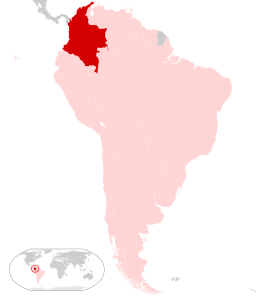NewsDesk @bactiman63
So far this year, 67,944 cases of dengue have been registered in Colombia. The population under 15 years of age is the most affected (48.7%). According to the Weekly Epidemiological Bulletin of the National Institute of Health, as of August 16, 2023, 33,133 cases have been reported in this age group, of which 18,181, that is, 54.9%, were without warning signs, followed by 14,461 (43.7%) with warning signs and 481 (1.5%) with severe dengue.

Image/Alvaro1984 18
Currently, 274 municipalities are in an outbreak situation and there has been an increase since July in the district of Cali and the departments of Santander, Meta, Tolima, Bolívar and Antioquia.
According to this report, 44 deaths have been confirmed in Colombia, 27 of them in children under 15 years of age. The health authorities have observed that this record of deaths is related, among other causes, to the low perception of the risk of caregivers who go to the health services inopportunely, to self-medication practices at home and to the inadequate management of hydration, situations that increase the risk of complications of the cases.
The Subdirectorate of Communicable Diseases of the Ministry of Health warns that the lethality due to dengue at the national level is under control and with values lower than those presented in previous epidemics.
Subscribe to Outbreak News TV on YouTube
Recommendations to the different actors
Through circular 013 of 2023, the Ministry of Health establishes dengue as a priority process for care in institutions that provide health services; It is also part of the Comprehensive Health Care Route to reduce access barriers. Bearing in mind that the largest number of cases occur in children under 15 years of age, the Communicable Diseases Branch of the Ministry of Health recommends:
To mothers and people in charge of child care
• Do not stop breastfeeding.
• Maintain frequent hydration preferably with natural fruit juices (without sugar), oral rehydration salts or rice, potato, banana or coconut water (freshly prepared). That is, choose liquids other than water or soft drinks or the like.
• Administer Acetaminophen only in the dose indicated by the medical team, do not self-medicate with other medications.
• Have bed rest until the critical phase of the disease passes or when the medical team considers it.
• Use an awning during the fever phase, wash and brush tanks at home. In the same way, carry out the collection of useless and elimination of hatcheries.
• Be alert to the presentation of possible cases of dengue in the family environment and consult the health services.
• Return to the health center in the time stipulated by the doctor who made the assessment.
• In case of presenting alarm signs, you must urgently return to the health service.
To EPS
• Organize the provider network to guarantee comprehensive care for the pediatric population.
• Intensify individual education actions on dengue in the context of other types of health care, mainly in endemic areas for dengue disease.
• Incorporate in the health care of the ‘Comprehensive Health Care Routes -RIAS’ by vital course of education regarding the disease, how to prevent it and secondary actions that the population can take in case of suspecting or feeling sick.
• Focus risk awareness actions on the population of risk groups (under 5 years of age, over 65 years of age, pregnant women and people with comorbidities).
- Brazil: Rabies vaccination campaign on Bolivia border
- Guinea reports confirmed dengue case
- Africa: Dengue outbreak declared in Chad
- Taiwan: Local dengue cases top 3,000, 1st death due to enterovirus D68
- Florida health officials report human EEE case in Suwannee County, Additional local dengue case in Miami-Dade County
- Alabama: Two human EEE cases reported in Baldwin County, One death
- Iran reports dozens of Crimean-Congo hemorrhagic fever cases: Local media


2 thoughts on “Colombia: Ministry of Health alerts the community to reinforce preventive and control actions in the face of a dengue outbreak”